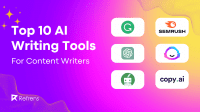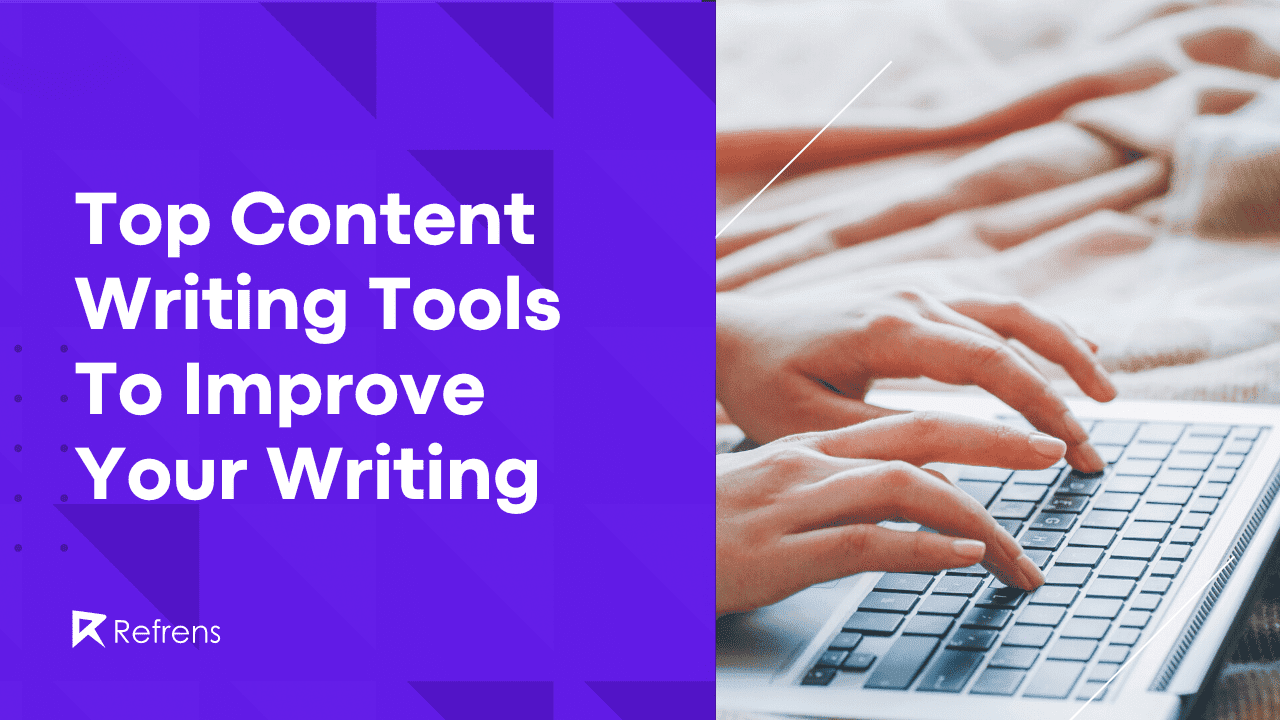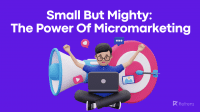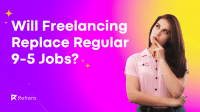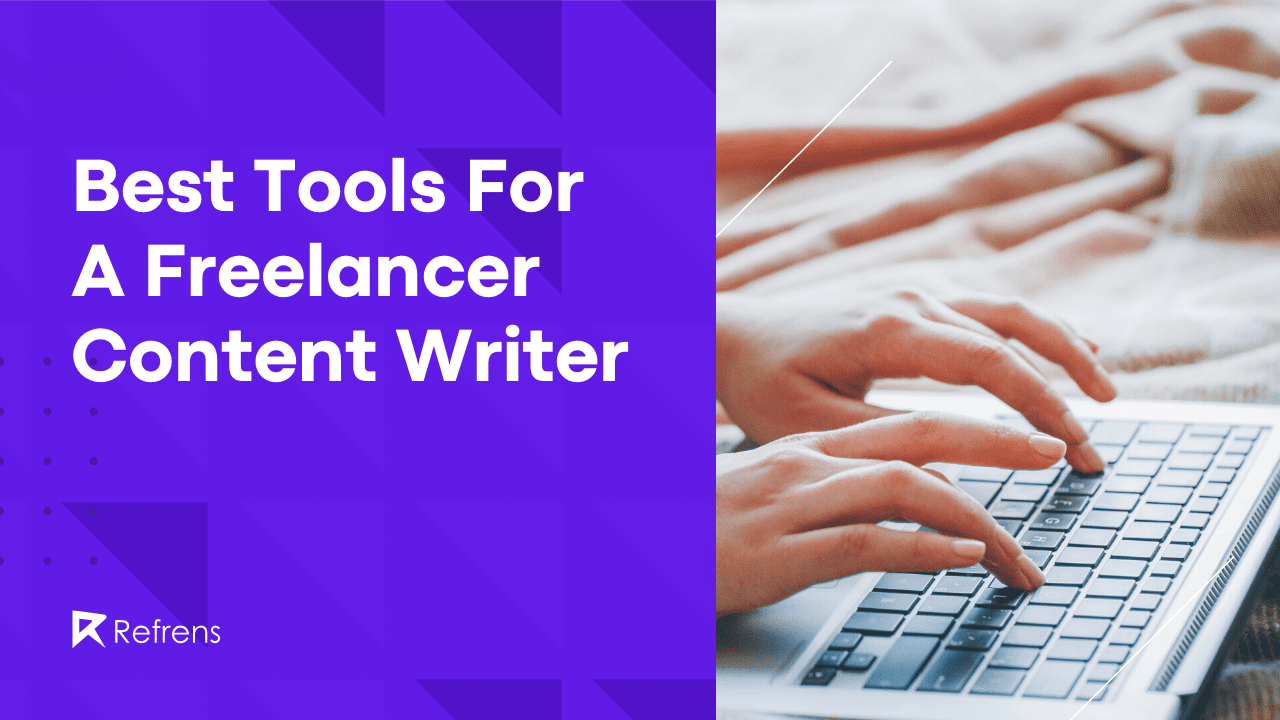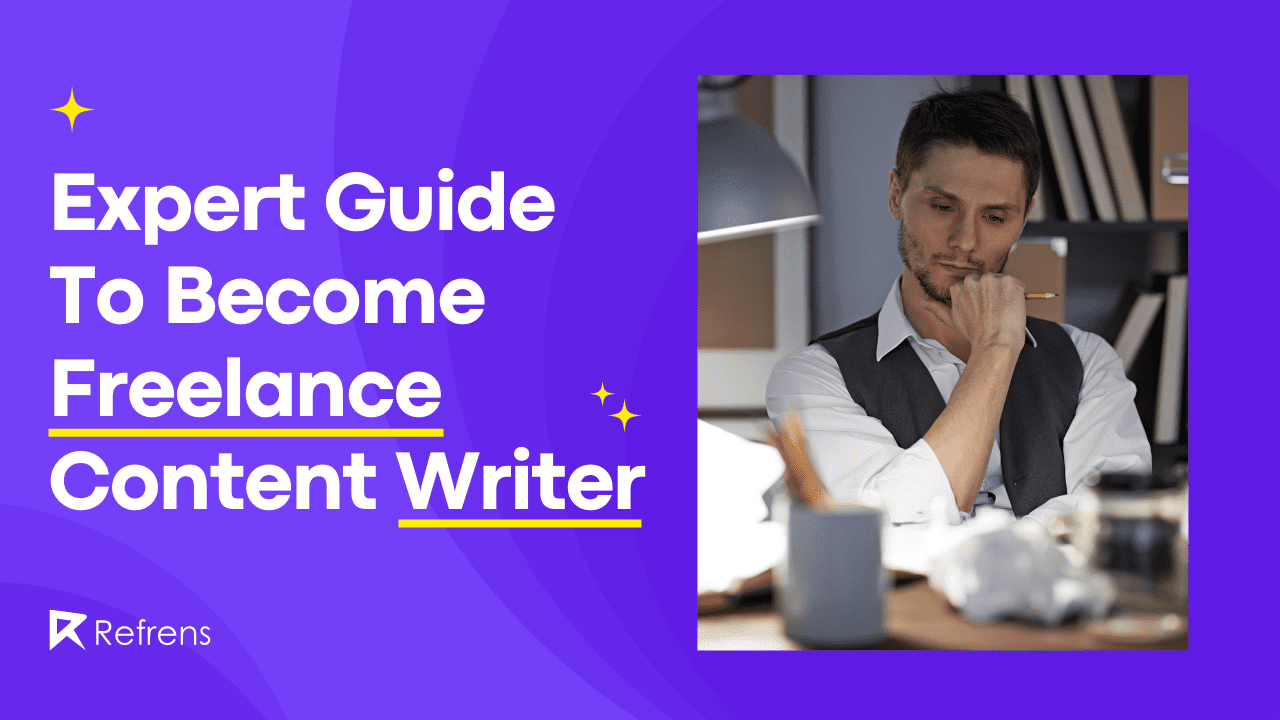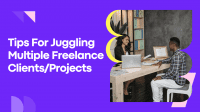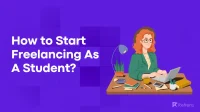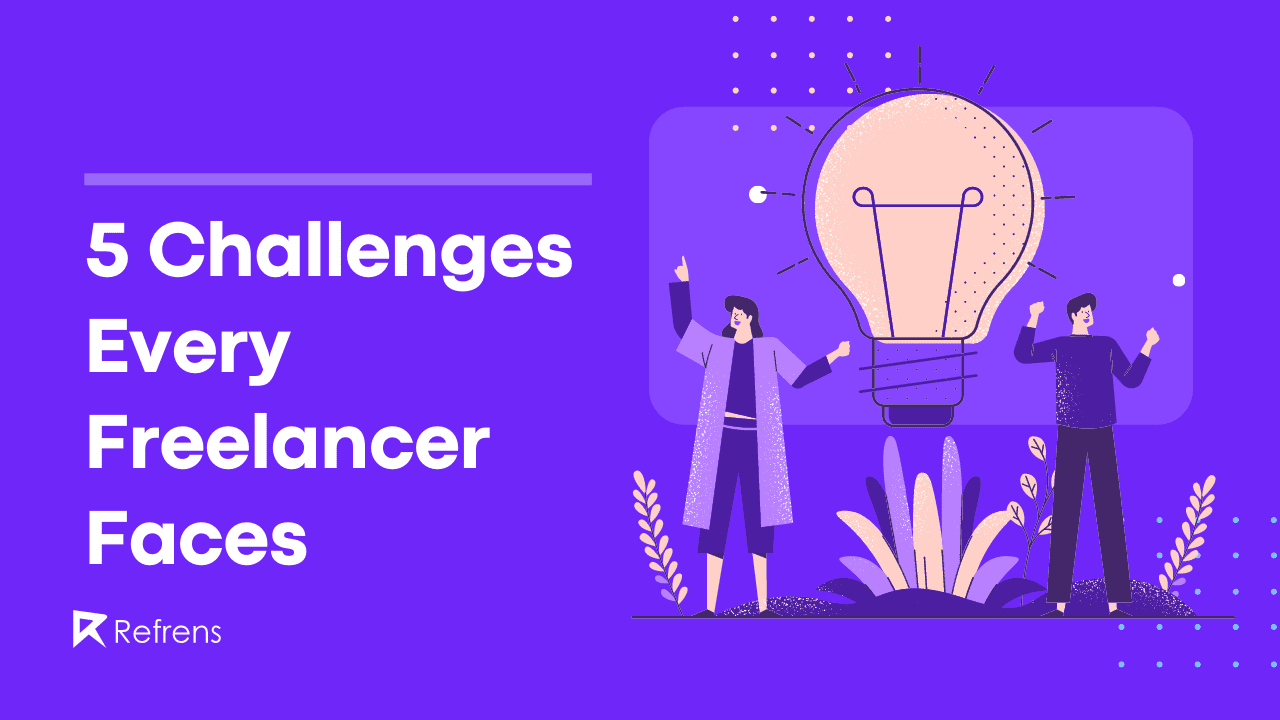Binati is an engineer turned content writer, who finds happiness in writing and is absolutely certain of sharing it with others. She suggests reading and listening to everything to stay aware of what is happening and to develop quality content. She considers freedom of choice as a major advantage and perception as a disadvantage for freelancers. She believes that for a healthy working relationship maintaining transparency is really crucial. Value your work and respect the client’s work too is her mantra when negotiating a deal. She dreams to be an author whose books are read by the majority. Optimistic, self-aware and content, she leaves her charm everywhere she goes. We wish success as her companion in all that she aims to attain.
Read Binati’s story of listening to her inner voice here:
Introduce yourself to us? Where are you from? About your family, parents? How was your childhood?
Hi there, I am Binati Sheth. I am from a quaint little town named Bharuch. It is famous for its peanuts and chemical industries around Gujarat. I thrived in a happy little family of three – my father, a chief engineer at G.N.F.C., my mother, an artist, and me. I had a marvelous childhood in the township I lived in and the school I studied in. It was a childhood full of foraging plants, playing and reading.
Post doing engineering, why did you choose the field of content writing? Speak to us about your passion for writing?
I am extremely self-aware. I knew I would be a bad engineer. I could be a professor but then what practical skills would I impart to my students? Engineering as a choice was out. All excuses aside, I was a writer, always was. I didn’t have many friends growing up so I used to talk to a notebook about things I did, read, learned and saw. My notebooks, the filled ones, always made me happy. I always aspired to share that happiness with others. I was going to write; I knew that with absolute certainty.
During engineering, I discovered how I could also write for others as well. I was looking for ways to help some causes really close to my heart but I didn’t have any money to donate. Instead, what I did was I donated my time and I started volunteering. They needed writers to draft minutes, send emails, and make brochures. I volunteered for that as well. It was four years of learning from the very best – people who knew how to get the most from any situation, no matter how bad it got. When I graduated from engineering (without sitting for placements), one of my now biggest clients hired me as a freelance writer. It was a passion meets persistence and luck situation.
Speak to us about being an author. Tell our readers about the value and the credibility it adds in your content writing portfolio?
Content writing paid my bills for the longest time. It never was something I wanted to do full-term because I like to write a lot. Content writing tends to be shorter, crisper.
I like to explore ideas. I love to let my mind wander. I thoroughly enjoy the research that comes after. Then I get to writing. The process of writing as an author is my dream come true.
As an author, you get to prove your worth as a writer – content or otherwise. Nobody can question you about being a writer given the perception surrounding authors.
Why did you choose to freelance? When did you begin to freelance? Were you planning it, or how did it happen?
The content industry has a major problem – lies. The disregard that most media houses and content teams have about facts and the truth is appalling. I do not want to contribute to this phenomenon at all. Instead, I freelance. I work with people I know and trust enough to not misguide their readers in the name of sales and branding.
I began freelancing in June 2015 after graduating from college. I wasn’t really planning on freelancing. As mentioned above, I was offered a deal I couldn’t refuse and since then, freelancing is all that I have done.
How did you approach the first few clients? Walk us through the first few projects of your freelancing career?
I slid in their inboxes. Finding email ids was easy in 2011, especially when your college and hostel had Wi-Fi. I got most of the email ids from Twitter. I looked up the leading activists working for the causes I cared for and I emailed them – “I am a student and I want to help. I can volunteer and help with whatever work you need done. 9xxxxxxxx1 is my contact number. Thank you for your time.” I got a call. I showed up. I started volunteering. The opportunity to write presented itself and I leapt at it. I did this for the four years of engineering college over and over again and made a name for myself in the activism circles as the scrabble playing scribe who knows a lot of trivia. I didn’t know this then but I think what happened was people saw me display my skills and they took notice. As soon as I graduated, a contract was presented with my first NDA and I started freelancing. Since then, I mostly get referred to new clients by my existing clients.
As a writer, how do you stay aware of the happenings around the world? What are your research strategies?
I read a lot. I read everything. There is no shortcut to this. If you are looking to create original content, you cannot copy-paste ‘research’ from four blogs and create a ‘new’ blog. That is conceptual plagiarism. When you read a lot of everything, you gain perspectives. Perspectives build insights. Insights lead to a question. Questions generally have an answer (‘this isn’t possible’ is actually an answer). That’s original content.
My research strategy is simple. Read and listen to everything being said about the topic you are researching. Prepare meticulously tagged lists (science, opinion, politics, technology, etc.). Understand what your client or you want to really write about. Use transition words and logical links to connect the tags in the list. Research done.
How important is it to be transparent and have a good communication flow with clients as a freelancer writer? What are the important points and techniques to keep in mind when negotiating a deal?
A writer who cannot communicate well isn’t a good writer. That’s my opinion, but it makes sense, right? It is extremely important to be transparent with everyone professionally to have a good working relationship. When you reached out to me, I told you how I was slammed with work so can you accommodate my time constraint. Had I lied about my schedule; you would have had to wait on my response which would probably make you presume how I was a discourteous goose when in fact I was just busy (tagged emails are no joke people). Be honest, always. Whoever has hired you is a person as well. People are intrinsically good. If you honestly tell them your side of a situation, the better the communication flows. Communicate honestly. Communicate clearly. Leave the creative writing for the articles.
While negotiation a deal, remember one thing – they need you just as much as you need them. Value your work and respect theirs. You are supposed to write for them. That’s it. A technique I recommend is video calls; always negotiate on video calls. It makes the interaction personal. What is personal, is always bound to be better than that which is impersonal.
What according to you are the most essential skills that anyone interested in this area of work should develop? Mention, if any recommended tools or resources for new freelancers/content writers to use.
An essential skill for a writer is knowledge of the language and knowledge of the niche. Respect the language. Respect the niche. Learn as much as you can about both – the language you write in and the niche you write for.
For language practice, I use Englisch Hilfen (https://www.englisch-hilfen.de/en/) every Saturday and Sunday for 2 hours of English practice. For research, I mostly use linkable resources like the National Digital Library of India (https://ndl.iitkgp.ac.in/), Online Library of Liberty (https://oll.libertyfund.org/), etc. This could actually be a massive article of its own. I plan to do a video series on LinkedIn and YouTube regarding tools of the trade because there are so many.
I don’t really use any grammar tools because they unconsciously make everything sound the same. I don’t like that. I use Microsoft Word and its stellar grammar checker to catch errors. If a client requests a plagiarism report (most don’t), I have a Copyspace license (https://www.copyscape.com/) which I use to generate the report.
To arrange books I ghostwrite, I use yWriter for Windows (http://www.spacejock.com/yWriter.html).
To self-publish books for some clients, I use KDP (https://kdp.amazon.com/en_US/).
I promise, more tools coming soon. When I publish those videos, I will notify Hetvi to link them to this blog.
What is the one major pro and/or con of freelancing, according to you?
A major advantage of freelancing is freedom. You have the power to choose the people you work for. You are free to approach anyone you want to work for.
A major disadvantage of freelancing is perception. People presume that freelancers freelance because nobody hired them. This perception becomes a disadvantage because people really like to waste my time with advice about why I need to ‘get a job.’ Freelancing is a job. For me personally, I was a training and placement coordinator at my college. I had the privilege to pick and choose whatever job I wanted during on-campus placement. Instead, I chose to trust my instinct which told me to keep writing.
What is the one thing about clients that you dislike? What can they do to improve your work life?
I communicate well. I tell them what I will do and won’t do. I listen to them really well. I will specifically mention what time I will be available to communicate with them. If they start micromanaging my work, I will tell them to let me work as politely as I can. I have not had clients who have disliked me to my face. Clarity in communication often appears rude on the face value but it leads to a seamless workflow. So, nothing I dislike really.
What mission and vision do you have? How do you want history to look at you?
I want to write books that people read. That’s my vision and mission. I want history to look at me and say, “I like reading her books. I wish she wrote more.”
Do you feel content with yourself as you look back or do you think you have missed something?
I feel incredibly content. As I mentioned before, I am incredibly self-aware. Every choice I have made was my choice. I have nobody to blame but myself. I have missed working in massive teams, I think. Besides that, life is good and it will get better.
Binati can be reached out on Refrens, Twitter, LinkedIn and Instagram.
If you are also a freelance who is troubled because of multiple edits from clients, read our blog on How To Deal With Frequent Edits as a Freelancer? to know a few tips on dealing with tough clients.
